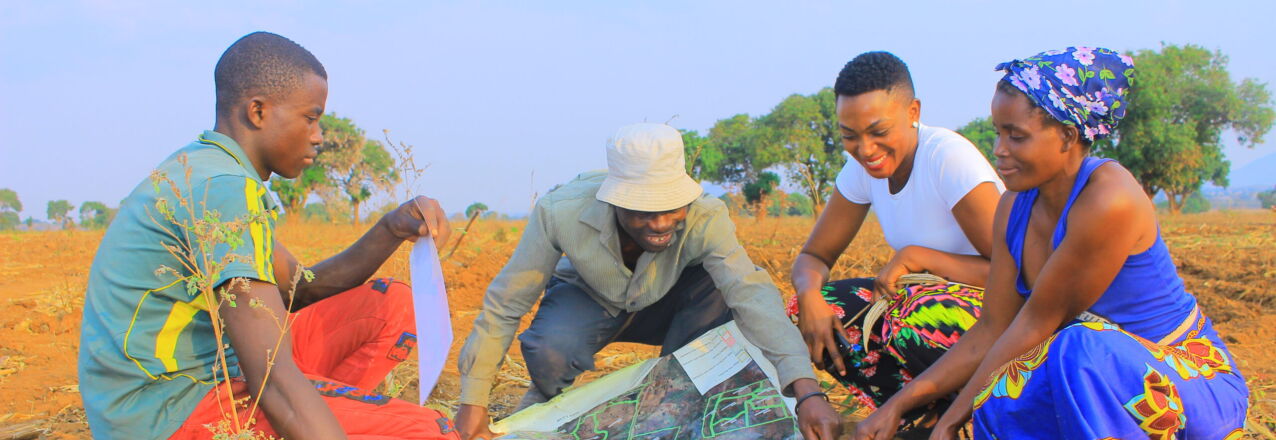Dear Readers,
I am excited to share the USAID Land and Resource Governance (LRG) Division’s November 2022 newsletter, which showcases recent highlights from LRG programming across USAID. Last month we commemorated the International Day of Rural Women 2022 with a blog post about how our programming through the Integrated Land and Resource Governance (ILRG) program is strengthening women’s land rights in six countries. We also featured a blog about promoting gender-responsive land documentation in Malawi, and are pleased to highlight a new toolkit that we developed to assist programming focused on reducing land-related conflict. These are just some examples of the many highlights featured below– thank you for your interest in our work!
Sincerely,
Stephen Brooks
Division Lead, USAID Land and Resource Governance Division
New Resources Available
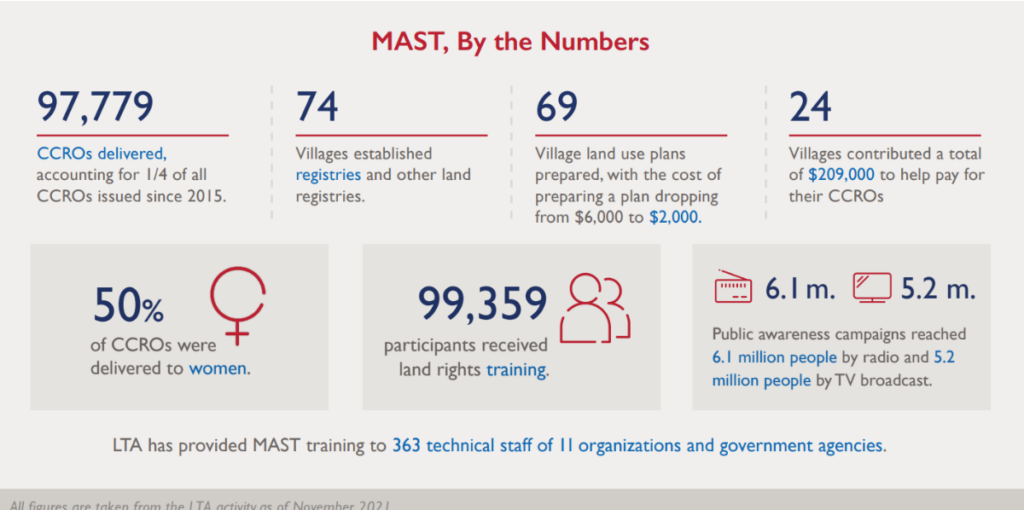
In Tanzania, USAID implemented Mobile Applications to Secure Tenure (MAST), the collaborative, participatory approach that builds sustainable local capacity to efficiently map resource rights and secure land tenure, in rural areas to lower the cost and time associated with mapping and registering customary land. Through the Land Tenure Assistance (LTA) Activity, USAID helped deliver nearly 100,000 customary land documents across Tanzania between 2016 and 2021. This infographic highlights the cross-sectoral achievements of MAST in Tanzania, including reduced concerns about future land boundary disputes and land expropriation. In addition to Tanzania, MAST has been used with great success in a number of countries, including Burkina Faso and Zambia. To learn more about MAST and its many applications to address persistent development issues, please visit: Land-links.org.
Land & Conflict: A Toolkit for Intervention 2.0. This new second installment of the Land & Conflict Toolkit is designed to introduce readers to the complex relationship between land and violent conflict, including a focus on key issues around gender equality and social inclusion, and to provide guidance on recommended approaches and actions to address some of the root causes of conflict. This understanding can help staff diagnose a problem, support strategic planning, and develop projects and activities that build on a robust appraisal of local context and conditions.
Conducting Randomized Controlled Trials (RCTs) to Evaluate the Impact of Land & Resource Governance Sector Interventions – Strengths, Practical Challenges, and Best Practice Guidance
Among the different types of evaluation and learning approaches, randomized controlled trials (RCTs) are often seen as an especially useful impact evaluation tool for evidence-based learning. However, RCTs to assess the impacts of land and resource governance interventions, and of land sector programming in general, have been very uncommon. This report seeks to help demystify RCTs for land sector programming, discuss some of the challenges and potential solutions for implementing LRG RCTs, and ultimately serve as a resource document that can help USAID to make informed decisions about whether, when, why, and how to engage in supporting an RCT of a land sector intervention.
Research Brief: Leveraging Formal Land Rights for Credit Access This brief sheds light on an enduring development question—if formalization of rural land rights does not significantly unlock formal credit through collateralizing land, particularly in Sub-Saharan Africa as theorized, are there alternative mechanisms by which formalization can improve credit access? After reviewing evidence for the collateral pathway, the brief summarizes emerging evidence on three alternative pathways and outlines evidence gaps to close and steps tenure programs can take to create an enabling environment for the pathways to function.
USAID Land Project Highlights
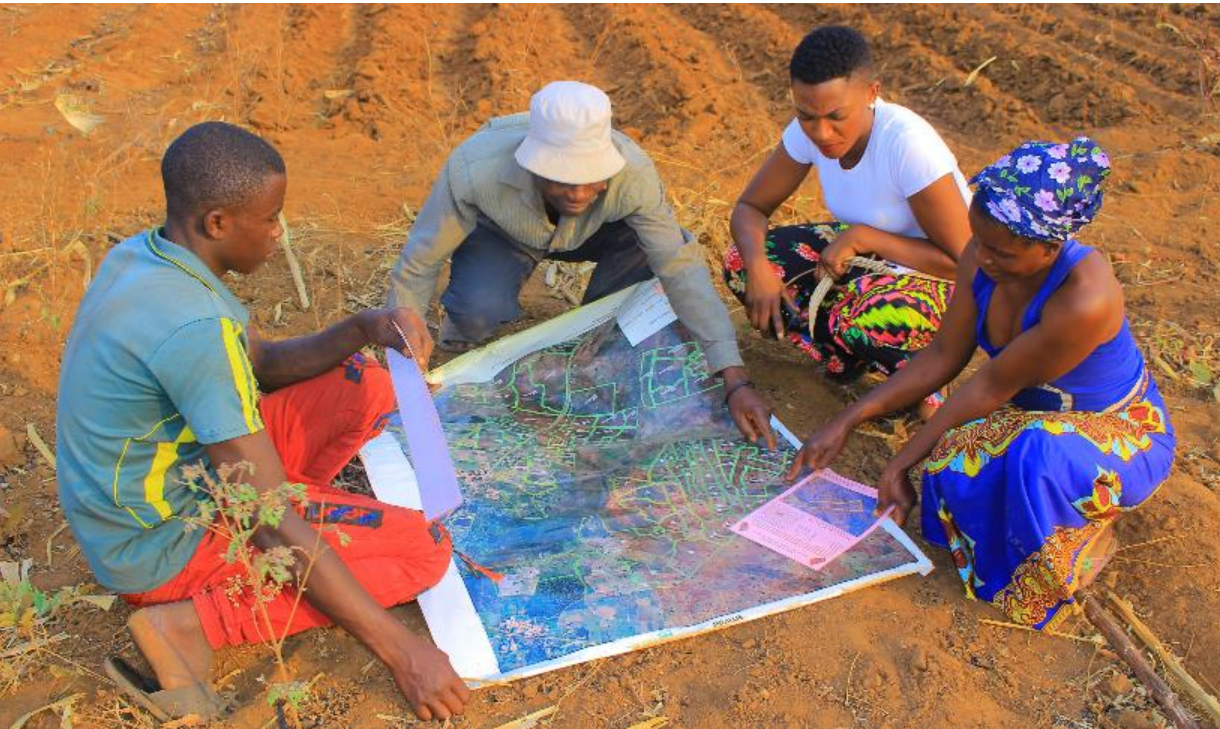
USAID’s Integrated Land and Resource Governance program is a flexible field support mechanism that works with USAID Missions to provide both short- and long-term assistance. Read their most recent publications:
Quote from the field: “As a member of the Customary Land Committee, I felt happy when I helped a woman register land with her husband. She was upset for not being included in the certificate, but after my explanation of the benefits of joint registration, the husband added her. I saw that I can make a difference in my community.” – Tamara Chidambo was elected a CLC members in Malanda village, Malawi, where USAID is working with the Government of Malawi to register customary land.
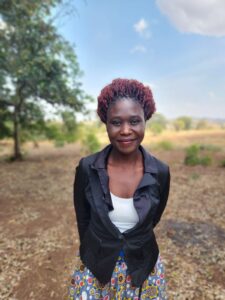
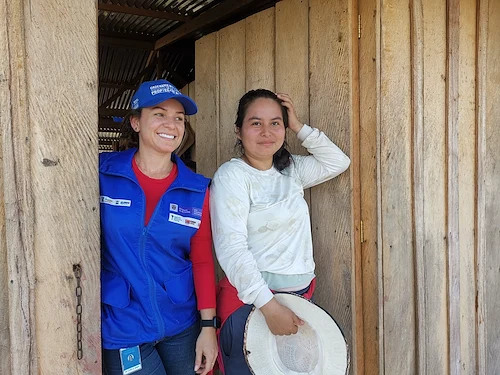
USAID/Colombia’s Land for Prosperity Activity supports the Government of Colombia in improving the conditions of rural households to achieve licit economic development through land tenure strengthening.
Read more in some of their recent blog posts:
Quote from the field: “This is my land. I got the land certificate for the sake of my children. Tomorrow when I am not here, nobody will take it from them.” – Vainess Ngoma, 87 years old, from Muluso village, Zambia, registered two parcels of 1.4 and 1.8 hectares with USAID support.
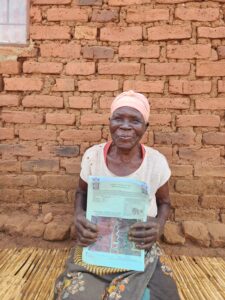
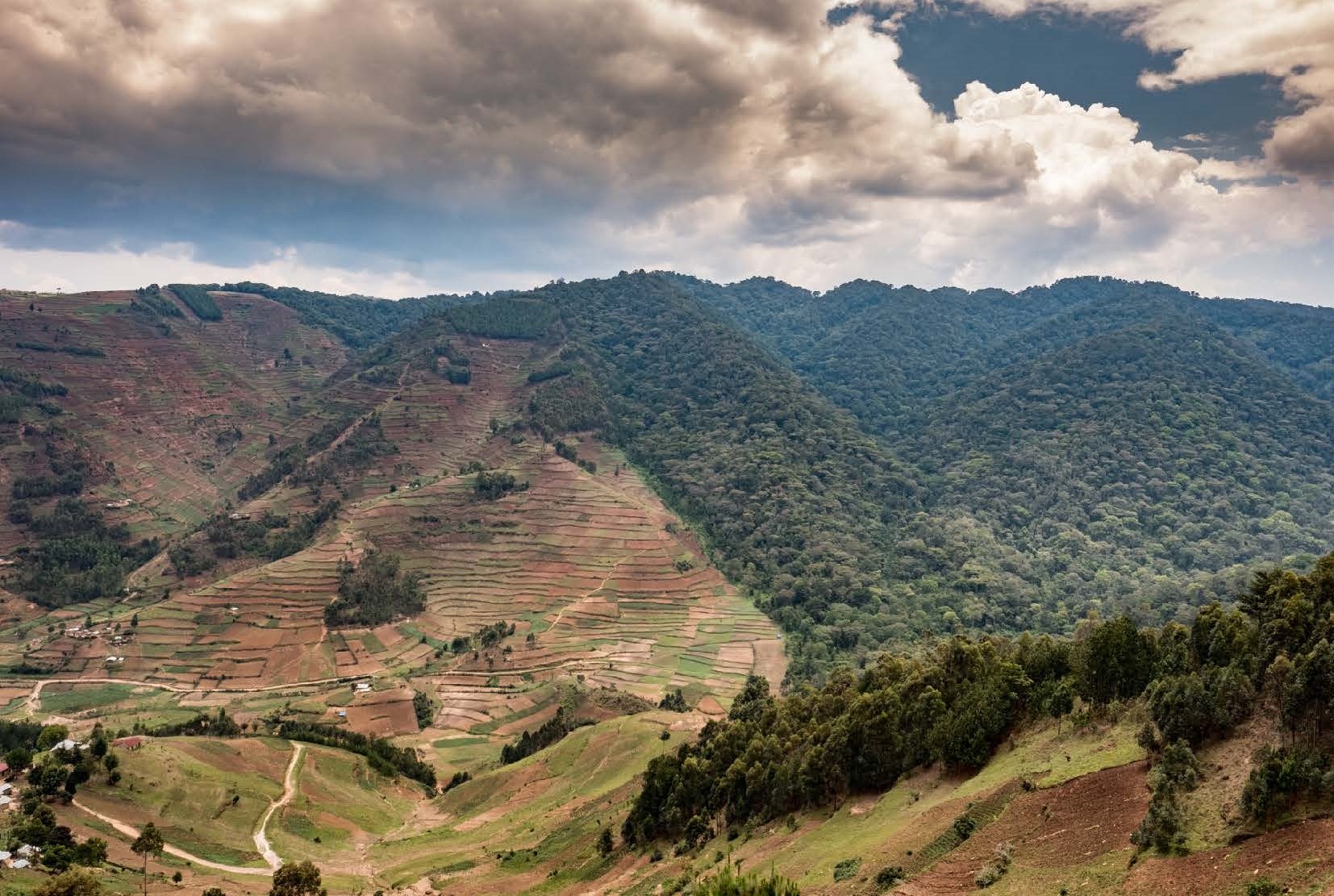
USAID’s Integrated Natural Resource Management activity provides on-demand support services and technical assistance for USAID Missions, Bureaus, and Independent Offices across a wide array of environmental and natural resource management issues, with a focus on gender equality and social inclusion.
Recent publications include:


